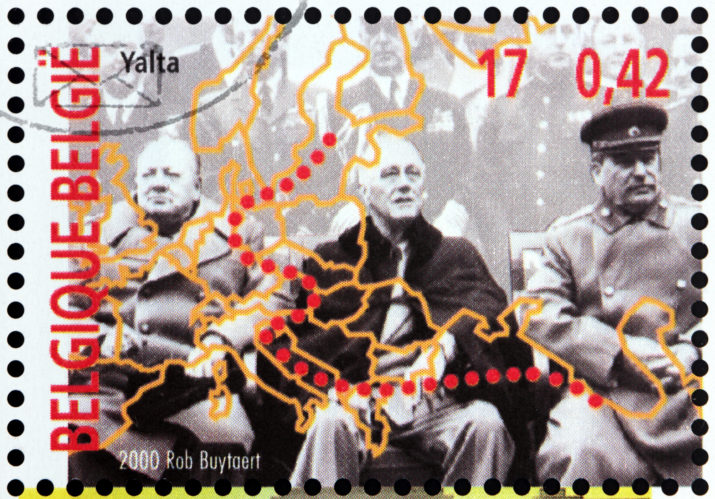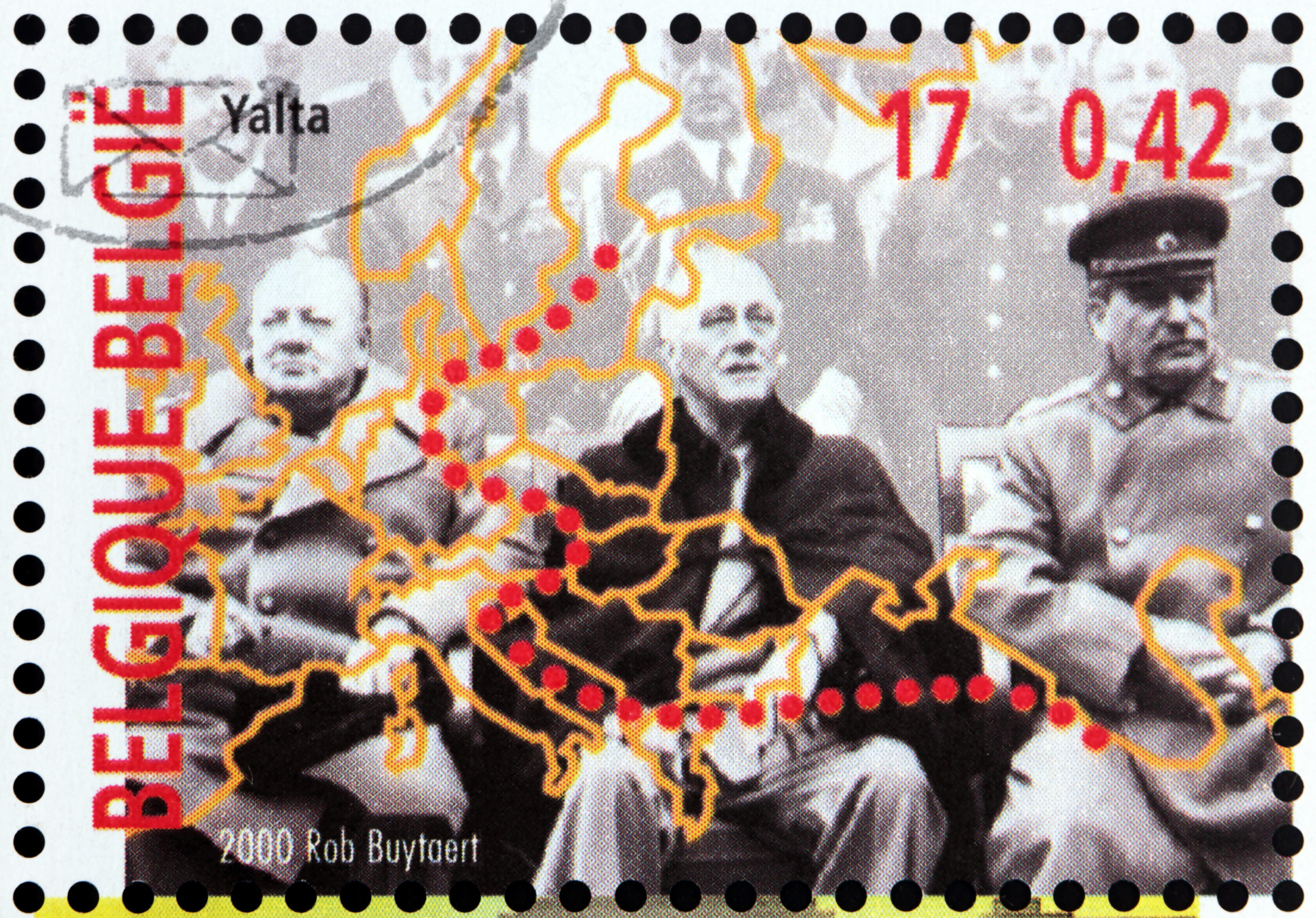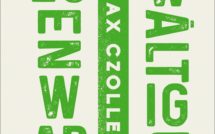

This course is online, asynchronous.
I first taught this iteration of Postwar Europe at the University of New Orleans in the fall of 2020. It is an upper-level course designed for undergraduate and graduate students who are pursuing degrees in history or related fields but have little exposure to European history beyond World War Two.
The course is based on a Postwar Europe course I had taught in the traditional classroom. Although I preserved the primary texts and films, converting the in-person course to a digital, the asynchronous format required rethinking the flow of the course. For most weeks, doing so involved compressing two weekly lectures and discussions into one and reorganizing the schedule to comply more exactly to 15 weekly units, rather than a potential of 30 meetings that could be divided into units within or across weeks. To replace the biweekly meetings, I posted weekly videos, which are not catalogued in the syllabus. Some served as a brief overview of the week’s topic and assigned media (podcasts, additional videos or readings). Others were more standard 15-30 minute Powerpoint lectures on some key topic from the reading.
To adapt to the new mode of instruction, I also reworked many of the assignments. I introduced discussion forums to replace the real-time interactions that classroom instruction affords. I also opened my student hours to weekly group discussions for whomever wished to show up on Zoom. By the end of the semester, I had a regular group of four to five students out of twenty who would show up to discuss the readings and assignments in depth with me and each other.
I was, however, able to retain some of my favorite assignments: challenge statements, wherein students needed to describe the argument of a given reading in no more than fifty words; occasional worksheets to guide student readings of primary sources; two brief film reflection papers on Ashes and Diamonds and The Lives of Others, and two 500-word analytical writing assignments. The first was a historical news editorial structured around a key event or development written from the perspective of a hypothetical person living in Europe in the 1950s or 1960s. The second involved an analysis of Georgi Gospodinov’s description of taga(roughly translated as sorrow, melancholy, and longing) in The Story Smuggler and a reflection on how this Bulgarian concept might apply to other Eastern European societies. For a more detailed explanation of this second assignment as applied to the traditional classroom, see this earlier Campus Dispatch. In lieu of a traditional final, I also assigned a Europe Today writing assignment, which required students to choose one theme, issue, or event we had studied in class and, using at least one news article published during the course of the semester, examine how it continues to impact our present day.
Course description
This course examines Europe as it emerged from the wreckage of the Second World War and into a world changing in ways hitherto unimaginable. European countries both East and West were now confronted with the challenges of rapid reindustrialization then deindustrialization, decolonization (the collapse of empires) and the emergence of the Third World, cultural upheaval and political transformation, and a globe-encompassing Cold War. In addition, this new situation posed important existential questions: what exactly is Europe and what role should it and its constituent societies play in the broader postwar world? Through a combination of primary and secondary written sources as well as historically significant films, this class will introduce students to the social, political, cultural, economic, and geopolitical processes by which Europe became what it is today, and which will continue to influence its path into the future.
Required texts and other resources
Georgi Gospodinov, The Story Smuggler (Chicago: University of Chicago Press, 2016)
Ian Kershaw – The Global Age: Europe 1950-2017 (New York: Viking, 2019)
Any additional readings will be accessible through Moodle or Kanopy, a film database accessible through the library website.
*Graduate students only* Timothy Scott Brown, Sixties Europe (New York: Cambridge University Press, 2020)
Grading policies and assignments
10% Challenge statements
Students will be required to periodically write and submit challenge statements, wherein they summarize the primary argument of the class reading in one sentence comprising 50 words or less. Grading will consist of either 2 points (good), 1 point (fine but flawed), or 0 (insufficient). I will drop the lowest two grades.
25% Discussion board and primary source worksheets
On weeks when we do not have Zoom discussions/discussion worksheets, we will be running a discussion board. I will release the prompt at the beginning of the week and each student will be required to post to the discussion board twice that week: the first post must be made by Wednesday at midnight, and the second must be made by Friday at midnight. These posts should be thoughtful, around 150 words each, and engage with the text, prompt, and previous posts in a sophisticated and nuanced manner. In other words, keep the conversation going.
Periodically I will assign primary source/course text worksheets for you to complete as homework. These must be typed, edited, complete, and on point.
20% Film reflections and Europe Today assignment
In addition to readings, this course requires you view two films for homework and write one-page (300 words) reaction papers about what you have seen in these films. Details will follow when the first reflection paper is assigned.
Undergraduates: One Europe Today article assessment will be assigned at the end of the semester. Like the Film Reflections, these are to be 300 words. They will involve finding an article from a reputable source about Europe over the last two months and relating it to class. Details will follow when the assignment is formally given.
Graduates: Instead of the Europe Today assignment, graduate students will read Sixties Europe by Timothy Scott Brown and write an approximately 900-word academic book review, which will be due at the end of the semester. We will also have one or two additional meetings in the last third of the semester to collectively discuss the book and project.
25% Analytical writing assignments
Two analytical writing assignments (500 words) will also be assigned as indicated below. These will require a close textual reading or assessment of one or more sources as well as a critical analysis of the significance of reading. You will receive further instructions on the day each is assigned.
20% Midterm exam
This course has one midterm exam that will consist of some combination of short answers, relationship questions with identifications, and essays. It will be time limited at one hour and fifteen minutes from the time you start it. The midterm will be open book (anything assigned during the semester can be at your disposal), but not open internet. Exams that plagiarize or rely on outside sources will be disqualified.
Course schedule
Week 1: Introduction
To do:
- Review syllabus
- Discussion board introductions
Week 2: The tense divide
Readings:
- Kershaw, Chapter 1
- George Orwell, “You and the Atom Bomb,” The Orwell Foundation, accessed February 6, 2021, https://www.orwellfoundation.com/the-orwell-foundation/orwell/essays-and-other-works/you-and-the-atom-bomb/.
Assignments:
- Challenge statement on Kershaw, Chapter 1
- Primary source worksheet on Orwell
- Discussion board
Week 3: The making of western Europe
Readings:
- Kershaw, Chapter 2 (pp. 37-66, Intro, Democracy Consolidated)
- Jürgen Habermas, “The Public Sphere: An Encyclopedia Article,” New German Review, 3 (Autumn 1974): 49-55.
- Albert Camus, “The Rebel,” The Rebel (New York: Vintage, 1991), 13-22. (excerpts, Moodle)
- Simone de Beauvoir, “From The Second Sex,” In Perspectives on the Past: Primary Sources in Western Civilization (Sixth Edition) 2., eds. James Brophy, Joshua Cole, John Robertson, Thomas Max Safley, Carol Symes (New York: WW Norton and Company, 2016, 606-8.
Assignments:
- Primary source worksheet on Habermas, Camus, and de Beauvoir
- Discussion board
Week 4: Crisis of colonialism
Readings
- Kershaw, Chapter 2 (pp. 67-84, Imperial Retreat, Conclusion)
- Frantz Fanon, “Reciprocal Bases of National Culture and the Fight for Freedom” from Wretched of the Earth (1959), accessed February 6, 2021, https://www.marxists.org/subject/africa/fanon/national-culture.htm
Assignments:
- Primary source worksheet on Frantz Fanon
- Discussion board
Week 5: The clamp
Readings:
- Kershaw, Chapter 3
Viewings:
- Ashes and Diamonds (Andrzej Wajda, 1958) (available on Kanopy)
Assignments:
- Film reflection
- Discussion board
Week 6: Good times
Readings:
- Kershaw, Chapter 4
Assignments:
- Challenge statement for Kershaw, Chapter 4
- Discussion board
Week 7: Challenges
Readings:
- Kershaw, Chapter 6
Due
- Analytical writing assignment I – History through ideas: An editorial on stabilization and society
Week 8: The turn
Readings:
- Kershaw, Chapter 7
At home
- Midterm exam
Week 9: The easterly winds of change
Readings:
- Kershaw, Chapter 8
Assignments:
- Challenge statement for Kershaw, Chapter 8
- Discussion board
Week 10: The Stasi, caught on film
Readings:
- Jefferson Adams, “The Stasi and the Party: From Coordination to Alienation,” The Stasi at Home and Abroad: Domestic Order and Foreign Intelligence, Bulletin of the German Historical Institute Supplement 9 (2014): 99-112.
Viewings:
- The Lives of Others (Florian Henckel von Donnersmarck, 2008)
Assignments:
- Film reflection
- Discussion board
Week 11: Power to the people
Readings:
- Kershaw, Chapter 9
- Start reading Gospodinov, The Story Smuggler
Assignments:
- Challenge statement for Kershaw, Chapter 9
- Discussion board
Week 12: The Story Smuggler of Bulgaria
Readings:
- Kershaw, Chapter 10
- Finish Gospodinov, The Story Smuggler
Assignments:
- Discussion board
Week 13: global exposure
Readings:
- Kershaw, Chapter 11
Assignments:
- Challenge statement for Kershaw, Chapter 11
Due:
- Analytical writing assignment II – “Taga” and resistance in the twilight of Communism
Week 14: The crisis years
Readings:
- Kershaw, Chapter 12
Listening:
- “The Roots, Rhetoric and Remedies of Europe’s Migrant Crisis Explained,” ProPublica, accessed February 6, 2021, https://soundcloud.com/propublica/the-roots-rhetoric-and-remedies-of-europes-migrant-crisis-explained.
Assignments:
- Challenge statement for Kershaw, Chapter 12
- Discussion board
Week 15: State of Europe Today
Readings:
- Kershaw, Afterward
Due:
- Europe Today assignment (*undergraduates only)
- Academic review of Brown, Sixties Europe (*graduate students only)
Nicholas Ostrum teaches history at Xavier University of Louisiana, the University of New Orleans, and Clark State College. His recent publications include “’Which Germany Do You Come From?’: Contending German Legacies and Trade in Postcolonial Libya,” in After the Imperialist Imagination: Two Decades of Research on Global Germany and Its Legacies, edited by Sara Pugach, David Pizzo, and Adam A. Blackler (2020) and an article, “Interdependency and Economic (Ir)rationality: West German-Libyan Petro-relations in ‘Crisis,’” forthcoming in the International History Review. He is also a member of the EuropeNow Research Editorial Committee and has written numerous reviews and articles for the journal, including most recently, “Georgi Gospodinov’s The Story Smuggler: Teaching Europe through Contemporary Experimental Literature.”
Photo: BELGIUM – CIRCA 2000: a stamp printed by BELGIUM shows Yalta (Crimea) Conference in February 1945 with Winston Churchill, Franklin D. Roosevelt and Joseph Stalin (Big Three), circa 2000.
Published on February 9, 2021.




